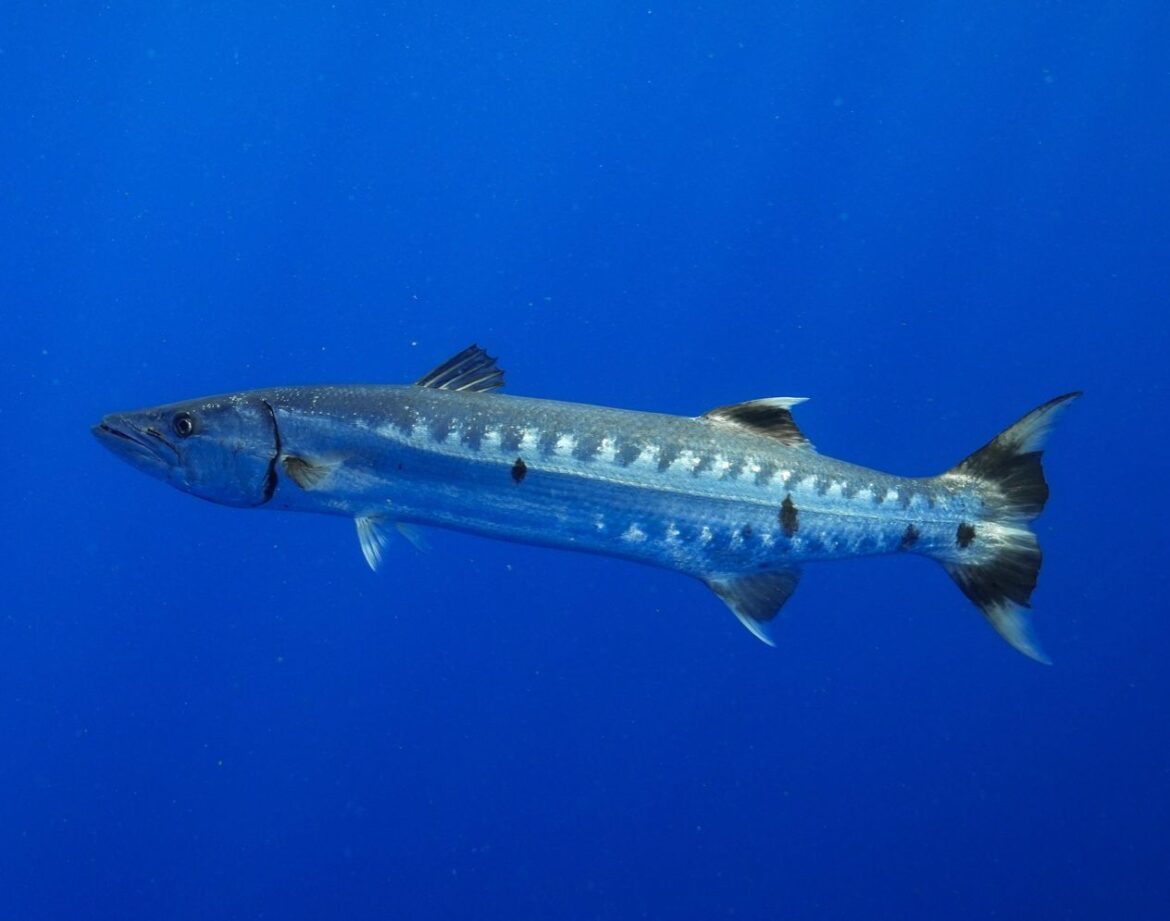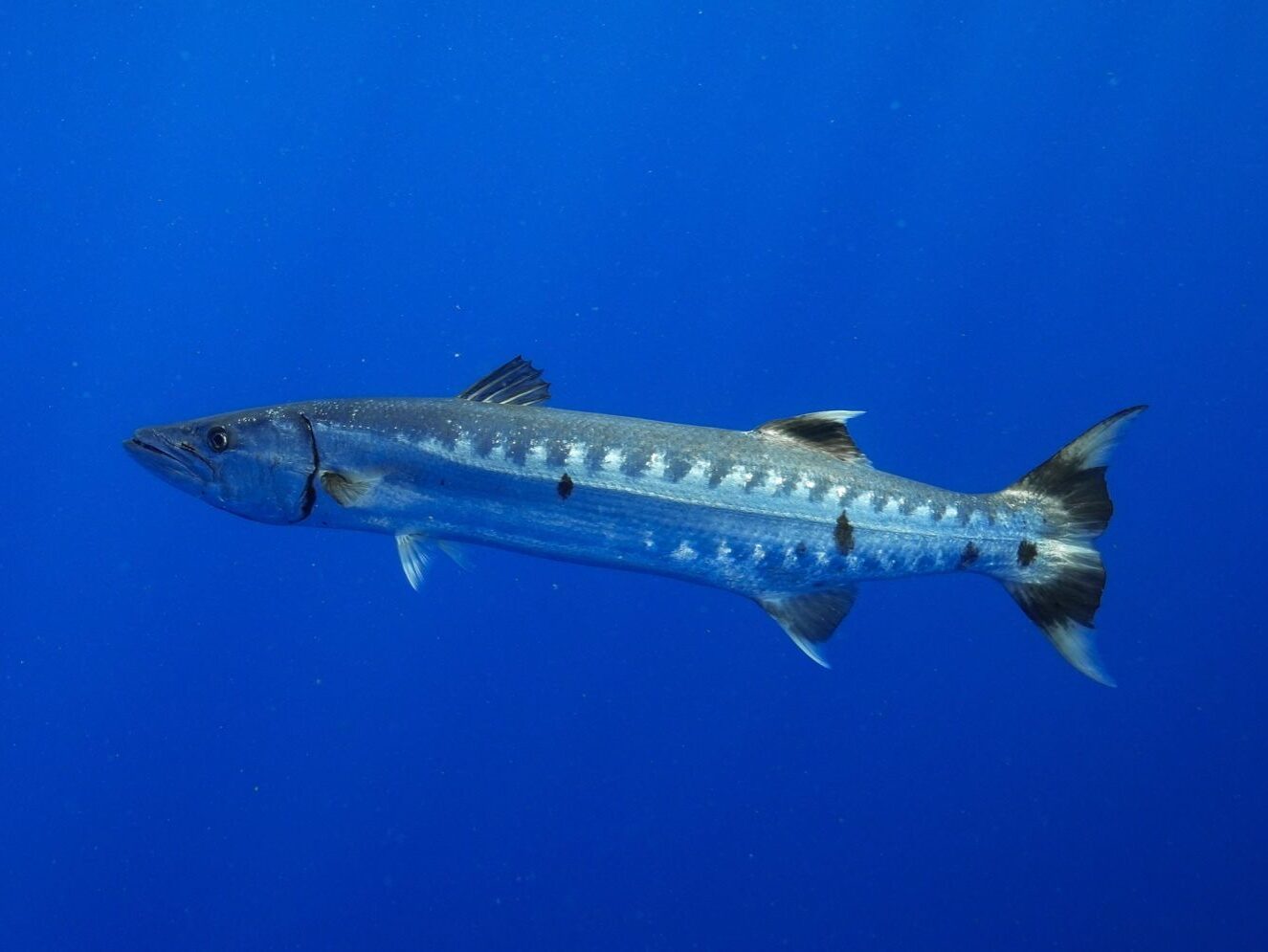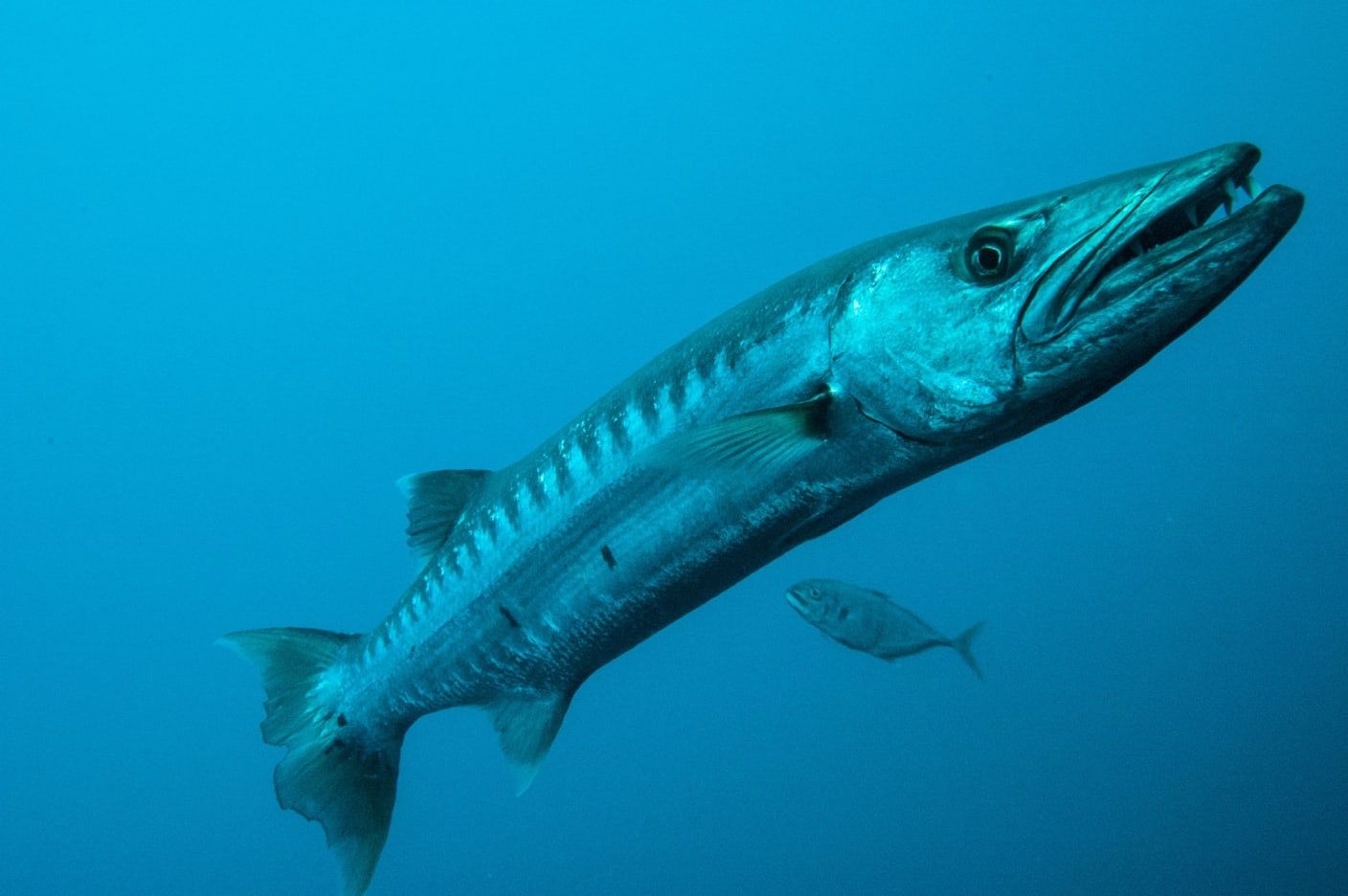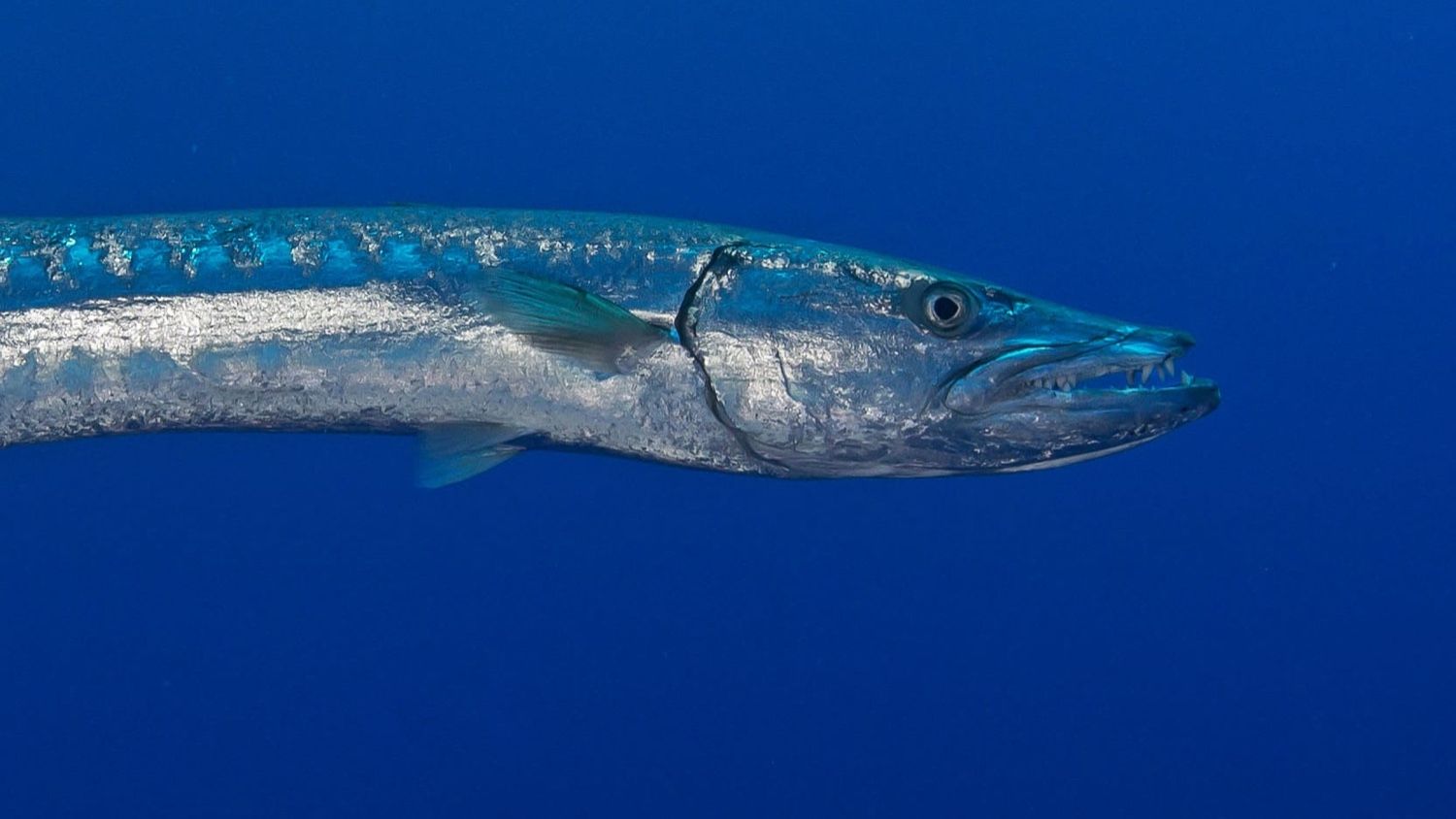Is Barracuda Good to Eat? The Risks and Rewards
Written By: Captain Kody Michael
For both anglers and foodies alike, the barracuda has a reputation as being one of the ocean’s most villainized and misunderstood fish. Many consider barracuda a “trash fish,” due to its unpleasant smell when caught.
However, there’s no denying that this fierce predator delivers an adrenaline-pumping experience for anyone who loves the excitement of barracuda fishing. But beyond its reputation and the excitement of the fishing, one question stands out: “Is barracuda good to eat?”
While some barracuda can be consumed, it’s not a straightforward answer. In this blog, we’ll dive deeper into this question and explore whether or not barracuda is good to eat and how to enjoy it safely and responsibly.
What Is a Barracuda, and Where Is It Found?
Barracudas are powerful, predatory fish that live in tropical and subtropical waters. Known for their long, silver bodies and razor-sharp teeth, these fish are both intimidating and captivating to those who love fishing. The great barracuda, can grow over five feet long and weigh more than 100 pounds.
If you’ve ever been barracuda fishing, you know they’re fast, aggressive, and unpredictable, often leaping from the water as they fight the line. Barracudas are commonly found near reefs, wrecks, and the open ocean, with hotspots including the Caribbean, Florida Keys, and Indo-Pacific regions.
But what happens after you’ve reeled in one of these fish? That’s when the real questions begin: Is barracuda good to eat? Why or why not?
Can You Eat Barracuda? Understanding the Risks
In short – yes, you can eat barracuda—but it should be done with caution. While barracuda is not as commonly consumed in the United States, it’s a staple in many Caribbean islands, where locals enjoy it regularly.
The primary concern surrounding the consumption of barracuda is the risk of ciguatera poisoning. Due to the harmful side effects of getting ciguatera, many experts recommend that barracuda be treated as a catch-and-release species, especially considering the potential health risks associated with eating them.
While barracuda can be a flavorful addition to your menu, it carries the danger of ciguatera poisoning—a foodborne illness caused by toxins that accumulate in the fish’s flesh.
What Is Ciguatera Poisoning?
Symptoms of ciguatera poisoning include:
- Chills and sweating
- Tingling or numbness in the hands and feet
- Skin rashes and itching
- Nausea, vomiting, and diarrhea
- Neurological symptoms, like the feeling of hot and cold being reversed
While rarely fatal, these symptoms can last for weeks or months, making it a serious concern for anyone considering eating barracuda.
Why Size and Location Matter
The risk of ciguatera poisoning depends on several factors:
- Size and Age: Larger and older barracudas have higher toxin levels due to years of eating contaminated fish. Smaller barracudas under three feet long are considered safer.
- Location: Certain regions, such as the Caribbean and Pacific islands, are known for higher ciguatera risks because of toxic algae blooms.
- Seasonal Factors: Warmer water temperatures can increase the prevalence of toxic algae, raising the risk during summer months.
The CDC even advises avoiding barracuda altogether due to these risks, especially the larger species, which should never be eaten.
Is Barracuda Good to Eat? Exploring the Culinary Side
When prepared correctly and sourced responsibly, barracuda can be a flavorful addition to your menu. So, is barracuda good to eat? Many say yes—when precautions are taken.
Taste Profile
Barracuda offers a mild, rich flavor that’s often compared to mahi-mahi or snapper. Its firm, flaky texture makes it versatile for a variety of cooking methods, from grilling to frying to stewing.
Popular Barracuda Dishes
Around the world, barracuda is a delicacy in regions where smaller fish are safely harvested:
- Grilled Barracuda: Marinated with citrus, garlic, and spices for a smoky, flavorful dish.
- Barracuda Stew: A Caribbean classic, simmered with vegetables, coconut milk, and local herbs.
- Fried Barracuda: Crispy, golden, and often served with a spicy dipping sauce.
Cooking tip: Pair barracuda with bold flavors like lime, chili, and garlic to enhance its natural taste.
Here’s a video by our friend, Viktor Hluben (Landshark Outdoors) showing you how to catch, cook, and clean Barracuda.
The Excitement of Barracuda Fishing
For those who enjoy being on the water, barracuda fishing is a heart-pounding adrenaline rush. Known for their speed and aggression, barracudas put up an awesome fight. They’re often caught with lures that mimic small, shiny fish—their favorite prey.
However, if you’re fishing for barracuda with the intention of eating your catch, keep the following in mind:
- Stick to smaller fish under three feet long to reduce the risk of toxins.
- Research local regulations, as some areas restrict barracuda fishing due to their role in marine ecosystems.
- Consider catch-and-release for larger specimens to preserve their population and maintain the balance of the food chain.
How to Eat Barracuda Safely
If you’re determined to try barracuda, here’s how to minimize the risks:
- Select Smaller Fish: Stick to younger barracudas, which are less likely to have accumulated high toxin levels.
- Know the Region: Avoid fish caught in high-risk areas like the Caribbean or Indo-Pacific.
- Buy Reputable: Purchase barracuda from trustworthy suppliers who can verify its safety.
- Skip the Myths: Traditional tests, like feeding the fish to animals or using the “ant test,” are not reliable. Stick to science-backed precautions.
Sustainability: Fishing with Responsibility
Barracudas play a vital role in marine ecosystems as apex predators, helping regulate fish populations. Overfishing, especially of larger specimens, can disrupt this balance. Here’s how to ensure barracuda fishing stays sustainable:
- Practice catch-and-release for large barracudas.
- Follow local fishing laws and quotas.
- Support sustainable seafood practices by purchasing responsibly sourced fish.
Conclusion: Can You Eat Barracuda?
So, can you eat barracuda? Yes—but only with careful consideration. While smaller barracudas caught in low-risk areas can be a delicious treat, the risks of ciguatera poisoning make it a fish to approach cautiously.
For those who love the excitement of barracuda fishing, the experience is as much about the adventure as it is about the potential meal. Whether you release your catch or prepare it for the table, barracuda fishing offers both fun and culinary potential—just be sure to stay informed and responsible.
We started Reel Guides to make it easy to book fishing trips around the United States.
Click here to browse and book your next fishing charter in Florida!
Readers can benefit from a special promotion code from Mustad Fishing.
Use promo code REELGUIDES for an additional 20% off your next order at www.mustad-fishing.com.





